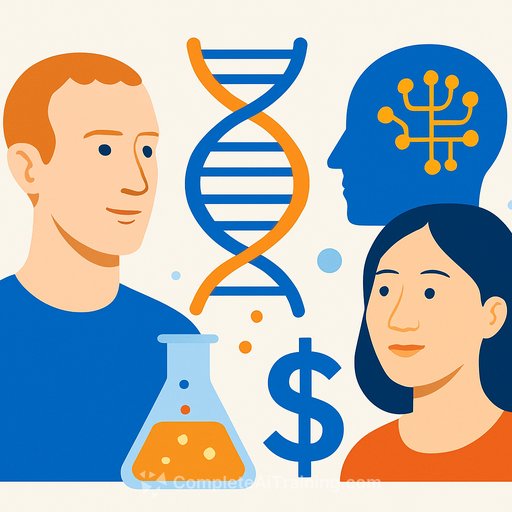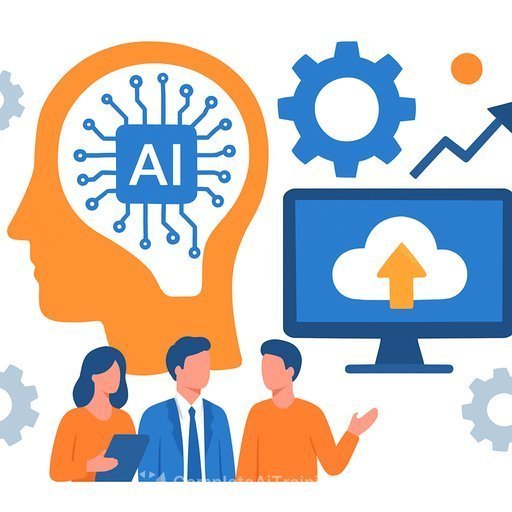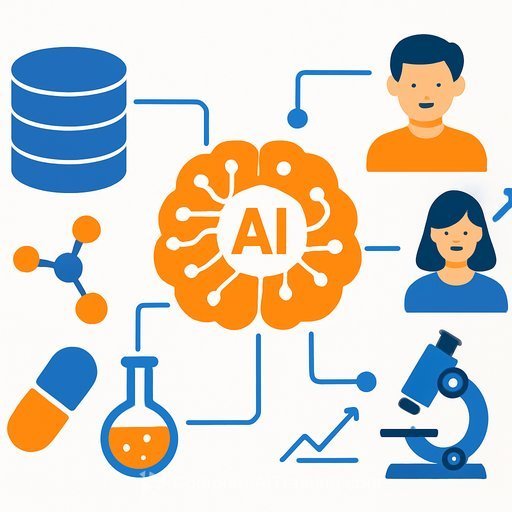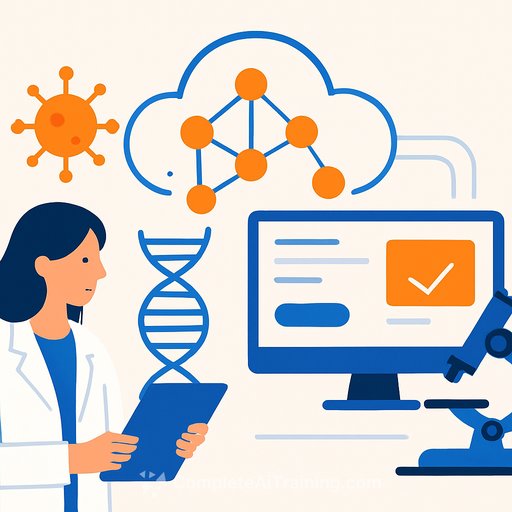Chan and Zuckerberg shift philanthropy to AI-driven biology
Mark Zuckerberg and Dr. Priscilla Chan are moving the bulk of their philanthropy into Biohub, their science organization, with a clear mandate: use AI and biology to curb disease. After years funding schools, immigration reform, and DEI programs, they're concentrating resources on long-horizon tools and open science that can push research forward.
Speaking at the Biohub Imaging Institute in Redwood City, Zuckerberg said the Biohub model has delivered the most impact so far - and that they're "doubling down." The couple has pledged 99% of their lifetime wealth from Meta stock to this mission, with Biohub now set to be the primary focus of their giving.
What's changing
- Biohub becomes the core effort: The organization plans an operating budget of about $1B per year, not counting the cost of running a large-scale compute cluster for life science research.
- Scale and scope: Since 2016, they've donated $4B to basic science. The team says they're on track to double that over the next decade.
- Networked institutes: Four Biohub institutes - Imaging (Redwood City), New York, San Francisco, and Chicago - each target different scientific challenges.
- Tool-first strategy: Focus on 10-15 year projects that deliver reusable tools to labs everywhere, rather than short-term grants. The aim is to speed up discovery for the entire field.
Why AI is central
Chan's work as a pediatrician shaped this push. Treating kids with rare diseases, she wanted to see what's happening inside cells - how mutations express across cell types and where mechanisms break. That level of resolution has been out of reach. AI is changing the math.
Biohub is building virtual cell systems: digital models that reflect molecular, cellular, and genomic processes. Think large language model mechanics, but trained on biological data streams. The goal is to run virtual experiments at scales no physical lab can match - and release the models and tools as open resources.
New moves: acquisition and leadership
Biohub is acquiring EvolutionaryScale, an AI research lab focused on large-scale systems for life sciences. Co-founder Alex Rives will serve as Biohub's Head of Science, overseeing experimental biology, data, and AI efforts. Terms were not disclosed.
Focus areas for the next decade
- AI-based cell models to map how cells function and fail in human contexts.
- Inflammation: sensors and models that track signals in real time inside living cells.
- Immune system targeting for earlier detection, prevention, and treatment strategies.
- Open datasets and atlases: work that contributed to large single-cell datasets and human cell maps continues, with AI added to the stack.
Context and criticism
The Chan Zuckerberg Initiative has reduced grantmaking in areas like DEI and immigration advocacy. Mentions of DEI were removed from its site earlier this year. The couple says the shift toward science has been underway for years and is not tied to the 2024 election cycle.
They're making this move as federal research budgets face pressure. Public scrutiny of billionaire philanthropy is growing, too - highlighted by recent comments from Billie Eilish urging more giving. Zuckerberg and Chan are leaning into the long-game science bets they believe can deliver field-wide gains.
What this means for research teams
If you lead a lab or platform team, expect more open tools, long-horizon datasets, and compute-intensive models entering preprint pipelines and core facility workflows. Translation is the lens: fewer mouse-first wins, more patient-focused models that help prioritize targets and design experiments with higher signal.
- Track releases from Biohub and its institutes. Contribute feedback on model behavior, edge cases, and dataset gaps.
- Benchmark virtual cell systems against your assays in inflammation, immunology, and rare disease work.
- Propose toolable problems: phenotyping, multimodal integration, data cleaning, and assay standardization.
- Build cross-functional pods (wet lab + ML + data engineering) to accelerate iteration cycles.
- Plan for governance: data provenance, consent models, and reproducibility pipelines baked into tooling.
Where to plug in
Explore Biohub's open science and institute network for tools, datasets, and collaborations:
If your team is skilling up on AI for biology and data ops, these curated resources can help streamline training and tooling selection:
The bottom line
Biohub is set to become the couple's main philanthropic engine with an emphasis on open, AI-enabled biology. The bet is simple: build durable tools, share them widely, and let the field move faster on problems that matter to patients.
Your membership also unlocks:






